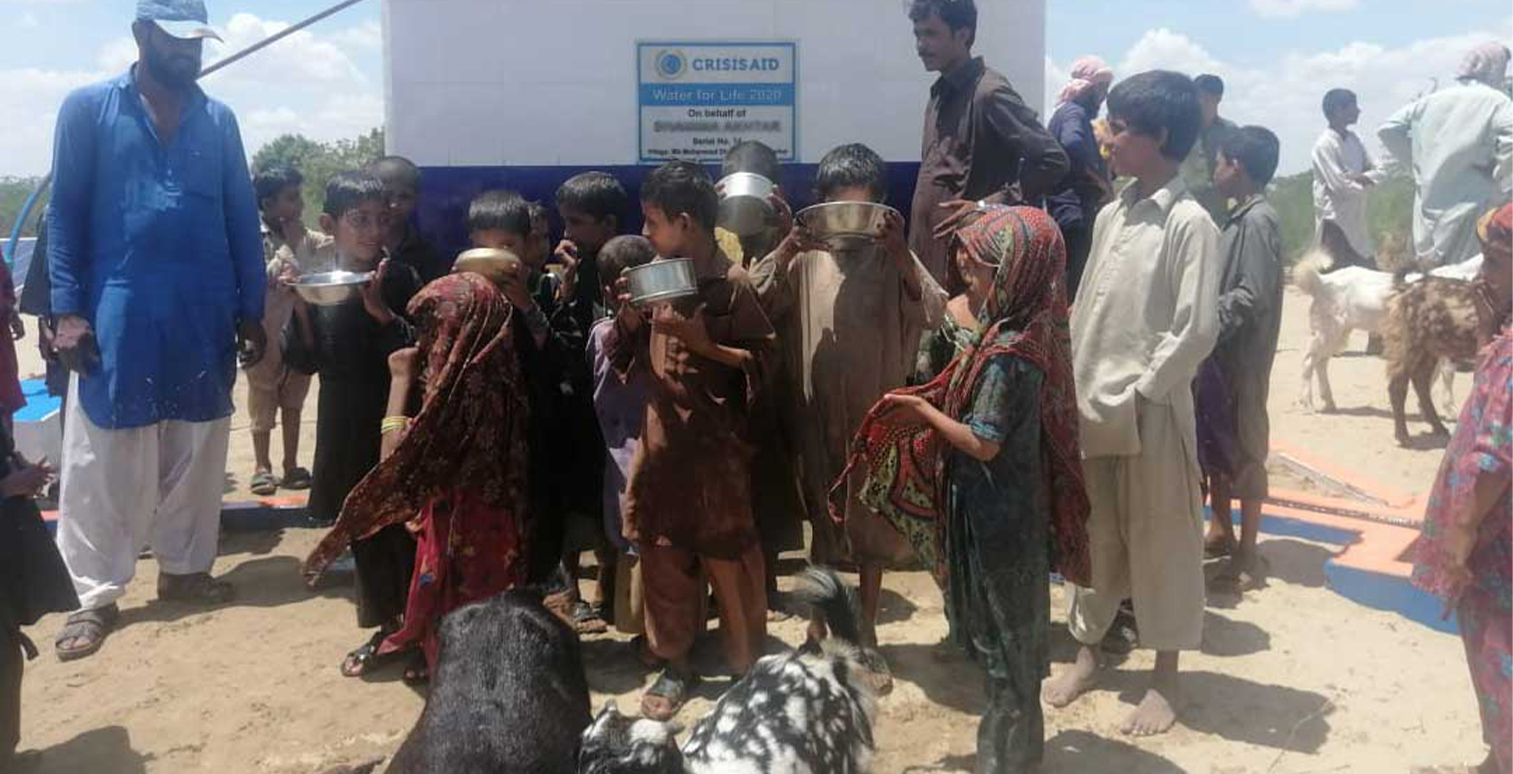Addressing the Enduring Hardships in Tharparkar

Nestled in the southeast of Pakistan, within the Sindh province, lies Tharparkar, a region rich in history and culture, yet faced with profound challenges. This desert, sprawling across 20,000 square kilometres, is unlike any other, known for its fertile lands amidst arid conditions. Home to over 1.6 million people, Tharparkar’s beauty and resilience are overshadowed by the ongoing crises stemming from environmental and socio-economic factors. With more than 80% of its expanse unreachable by vehicle, the remoteness of Tharparkar adds to the complexity of delivering aid and implementing sustainable solutions.
Crisis Aid, in its mission to alleviate human suffering, has turned its focus towards Tharparkar, pledging to support its people who endure the harsh realities of drought, poverty, and neglect. This pledge aligns with the charity’s broader goal of reaching out to some of the most isolated communities across the globe. The initial strategy involves distributing emergency food parcels to the destitute, ensuring that immediate needs are met as part of a comprehensive plan of action.
Water Crisis: A Daily Struggle for Survival
In Tharparkar, life revolves around the quest for water. Households dedicate three to five hours daily to procure water, often walking six kilometres to the nearest water source. The water, sourced from sparse and distant wells, is predominantly saline and unfit for consumption, posing serious health risks. According to the World Health Organisation, over 80% of Tharparkar’s water is too saline for human consumption, leading to chronic diseases among the population. Crisis Aid’s response includes the construction of wells and water pumps in non-saline areas, aiming to provide the community with safe drinking water, a fundamental step towards improving health and well-being.
Agricultural Challenges and Livelihoods
The reliance on rain-fed agriculture places Tharparkar’s residents in a precarious position, with droughts leading to crop failure and loss of livestock, the backbone of their economy. These conditions force families to migrate in search of grazing lands, further complicating access to education and healthcare. The consequences are dire, with Tharparkar witnessing some of the highest infant mortality rates globally. Women, in particular, bear the brunt of these challenges, undertaking the laborious task of water collection. This, coupled with poor nutrition and the extreme heat, leads to health complications and a cycle of giving birth to malnourished children, perpetuating a cycle of poverty and malnutrition.
Education and Health: Building Towards a Brighter Future
The children of Tharparkar are born into a world of uncertainty, with limited access to basic necessities such as nutritious food and education. The Sindh government’s inability to address these needs has left many children deprived of their fundamental rights. Poverty forces children into labour from a young age, carrying water and wood to support their families, depriving them of their childhood and the chance for a better future. Crisis Aid recognises the urgency of addressing these issues and plans to establish schools and medical clinics in the most remote areas, providing a beacon of hope for the community.
A Call to Action
As Ramadan approaches, we are reminded of our shared humanity and the responsibility to support those in need. The people of Tharparkar represent a community that, despite its rich cultural heritage, faces neglect on the world stage. Crisis Aid invites you to join in its mission to bring about positive change in Tharparkar. Your support can provide emergency food parcels, clean water, and the foundations for education and healthcare that the people of Tharparkar desperately need.
The Road Ahead
Addressing the challenges in Tharparkar requires a multi-faceted approach, focusing not only on immediate relief but also on long-term sustainable development. Through education, we can empower the next generation with knowledge and skills to break the cycle of poverty. By improving healthcare, we can reduce the high rates of infant mortality and chronic diseases. And through the provision of clean water, we can lay the groundwork for healthier lives and a brighter future.
Join Us in Making a Difference
Your contribution this Ramadan can light the path for a better tomorrow for the people of Tharparkar. Together, we can address the pressing needs of this community, providing them with the essentials for survival and the tools for a sustainable future. Let us extend our hands in solidarity with the people of Tharparkar, making a lasting impact through our collective action. Donate now and be a part of their journey towards resilience and hope.
In conclusion, the crisis in Tharparkar is a testament to the resilience of its people and the urgent need for comprehensive support. Crisis Aid’s commitment to Tharparkar reflects a broader mission to serve humanity’s most vulnerable, a call to action for all of us to contribute towards making a meaningful difference. As we move forward, let us remember the power of compassion